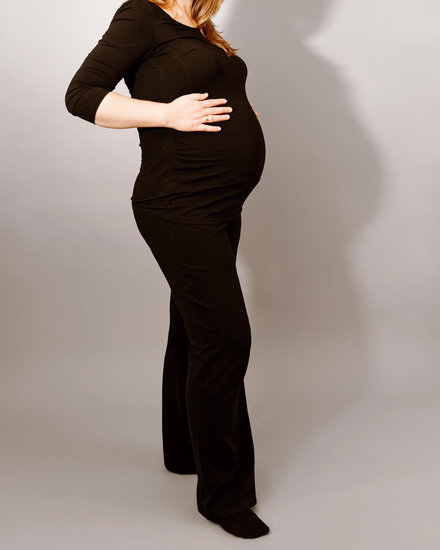Stress during pregnancy, especially in the third trimester, can have a significant impact on both the mother and the baby. Many expectant mothers may experience heightened levels of stress during this time as they prepare for childbirth and parenthood. Understanding how stress affects pregnancy in the third trimester is crucial for ensuring the well-being of both the mother and the developing child.
As the body goes through various changes to accommodate the growing fetus, the third trimester can be physically demanding for pregnant women. When stress is added to the mix, it can exacerbate existing physical discomforts such as back pain, insomnia, and digestive issues. Chronic stress during this crucial period may also increase the risk of complications like high blood pressure or preterm labor.
Furthermore, research has shown that maternal stress in the third trimester can impact the baby’s development. High levels of stress hormones in the mother’s system can cross over to the placenta and affect the baby’s neurological and cognitive development. This underscores the importance of managing stress effectively during pregnancy to promote a healthy environment for both mother and child.
Understanding the Third Trimester
During the third trimester of pregnancy, which typically spans from week 28 until the birth of the baby, women often experience a combination of excitement and anxiety as they prepare for labor and bringing a new life into the world. This period is marked by significant physical changes in the mother’s body to accommodate the growing fetus, as well as emotional fluctuations due to impending motherhood.
However, stress can play a crucial role during this final stretch of pregnancy, impacting both the mother and the baby.
One key aspect to consider is how does stress affect pregnancy in third trimester. High levels of stress during this time can have detrimental effects on both the mother’s physical health and the baby’s development.
Physiologically, stress can manifest in symptoms such as elevated blood pressure, disrupted sleep patterns, increased risk of gestational diabetes, and even preterm labor. Additionally, chronic stress has been linked to complications such as preeclampsia, a serious condition that can endanger both the mother and baby.
Research has shown that maternal stress during the third trimester can also impact fetal development. The release of stress-related hormones like cortisol can cross the placenta and affect the unborn child’s growth and brain development.
Babies born to mothers experiencing high levels of prenatal stress may have a higher risk of behavioral problems later in life. Therefore, it is essential for pregnant women to find healthy ways to manage and reduce stress during this critical stage of pregnancy for their own well-being and that of their babies.
| Aspect | Impact |
|---|---|
| Physical Health | Elevated blood pressure, disrupted sleep patterns |
| Baby’s Development | Impacts fetal growth and brain development |
Impact of Stress on the Mother’s Physical Health
Stress during the third trimester of pregnancy can have significant impacts on the mother’s physical health. The body goes through various changes during this stage, and adding stress to the mix can exacerbate existing conditions or lead to new issues.
One common effect of stress in the third trimester is increased blood pressure, which can be especially problematic for women with a history of hypertension. High stress levels can also contribute to sleep disturbances, digestive problems, and overall discomfort for expectant mothers.
Furthermore, chronic stress during the third trimester has been linked to an increased risk of preterm labor and delivery. The release of stress hormones like cortisol can interfere with the production of oxytocin, a hormone essential for childbirth. This disruption in hormonal balance may trigger early contractions or premature birth. Additionally, high levels of stress can weaken the immune system, making pregnant women more susceptible to infections and illnesses that could impact their overall well-being.
It is crucial for expectant mothers to prioritize their mental health and find effective ways to manage stress during the third trimester. Practices such as mindfulness meditation, prenatal yoga, deep breathing exercises, and gentle physical activity can help reduce tension and promote relaxation.
Seeking support from healthcare providers, counselors, or support groups can also be beneficial in addressing sources of stress and developing coping strategies tailored to individual needs. By taking proactive steps to address stress and prioritize self-care, pregnant women can safeguard their physical health and well-being during this crucial stage of pregnancy.
| Effect | Impact |
|---|---|
| Increased blood pressure | Potential risk for hypertension |
| Preterm labor and delivery | Risk increases due to hormonal disruptions |
| Weakened immune system | Higher susceptibility to infections |
Effects of Stress on the Baby’s Development
During the third trimester of pregnancy, the effects of stress on the baby’s development become particularly significant. As a critical period for fetal growth and maturation, any maternal stress during this time can have long-lasting consequences on the baby’s health and well-being. Here are some ways in which stress can impact the baby during the third trimester:
- Low Birth Weight: High levels of stress can lead to low birth weight in newborns, which is associated with an increased risk of various health problems.
- Preterm Birth: Maternal stress has been linked to preterm birth, which can result in complications for the baby such as respiratory issues and developmental delays.
- Impaired Brain Development: Prolonged exposure to stress hormones in utero can affect the development of the baby’s brain, potentially leading to cognitive and behavioral issues later in life.
It is crucial for pregnant women to recognize the potential implications of stress on their babies during the third trimester. Implementing strategies to reduce stress levels and promote relaxation can not only benefit the mother’s well-being but also positively influence the baby’s development.
Moreover, seeking prenatal care and discussing any concerns about stress with healthcare providers can help monitor both maternal and fetal health throughout this critical stage of pregnancy. By addressing stress effectively, expecting mothers can create a nurturing environment for their growing babies and enhance their overall pregnancy experience.
Coping Mechanisms for Stress During Pregnancy
Stress during pregnancy, particularly in the third trimester, can have significant impacts on both the mother and the baby. It is essential for pregnant women to find effective coping mechanisms to manage stress and reduce its potential negative effects. One key aspect of coping with stress during pregnancy is recognizing the signs and symptoms early on.
This can include feelings of anxiety, fatigue, mood swings, and sleep disturbances. By being aware of these indicators, expectant mothers can take proactive steps to address their stress levels.
One effective way to cope with stress during pregnancy is through regular physical activity. Engaging in low-impact exercises such as walking, swimming, or prenatal yoga can help release endorphins that improve mood and reduce stress.
Additionally, practicing relaxation techniques such as deep breathing exercises, mindfulness meditation, or progressive muscle relaxation can help calm the mind and body in times of heightened stress. These techniques not only provide immediate relief from stress but also contribute to overall well-being throughout pregnancy.
Furthermore, maintaining a healthy lifestyle through proper nutrition, adequate rest, and hydration is crucial in managing stress during the third trimester. A well-balanced diet rich in nutrients helps support both the mother’s and baby’s health while ensuring optimal energy levels. Sufficient rest and sleep are essential for reducing stress levels and promoting relaxation.
Hydration is also important in regulating emotions and staying physically well during this critical period of pregnancy. By incorporating these coping mechanisms into their daily routine, pregnant women can better navigate the challenges of stress during the third trimester while supporting their own well-being and that of their unborn child.
Importance of Seeking Support and Professional Help
Pregnancy can be a joyful time for many women, but it also comes with its own set of challenges and stresses. The third trimester, in particular, can be a crucial period where the physical and emotional well-being of both the mother and the baby are of utmost importance. During this stage, it is essential for pregnant women to recognize the impact that stress can have on their health and that of their unborn child.
Here are some key points to consider regarding how stress affects pregnancy in the third trimester:
- Increased levels of stress hormones such as cortisol can lead to various physical symptoms in pregnant women, including high blood pressure, headaches, and digestive issues.
- Chronic stress during the third trimester may also increase the risk of preterm birth, low birth weight, or other complications for the baby.
- Stress can affect the expectant mother’s ability to sleep well, eat nutritiously, and engage in healthy behaviors that are crucial for her own well-being and that of her developing fetus.
Seeking support from loved ones, healthcare providers, or mental health professionals is vital for pregnant women experiencing high levels of stress during the third trimester.
- Counseling or therapy sessions can provide pregnant women with effective coping strategies to manage stress and anxiety.
- Joining support groups or prenatal classes can help expectant mothers connect with others who may be going through similar experiences.
- Regular prenatal check-ups allow healthcare providers to monitor both the physical and emotional well-being of pregnant women closely.
Remember that seeking help is not a sign of weakness but a proactive step towards ensuring a healthy pregnancy for both mother and baby. It is essential to prioritize self-care and reach out for support when needed to navigate through the challenges that come with pregnancy-related stress in the third trimester.
Managing Stress Through Relaxation Techniques
During the third trimester of pregnancy, managing stress through relaxation techniques becomes increasingly important for both the mother and the baby’s well-being. The physical and emotional changes that occur during this stage can often lead to heightened levels of stress and anxiety. It is crucial for pregnant women to find effective ways to relax and de-stress in order to promote a healthier pregnancy.
Benefits of Relaxation Techniques
Utilizing relaxation techniques during the third trimester can have numerous benefits for expectant mothers. Activities such as deep breathing exercises, meditation, yoga, and mindfulness can help reduce stress hormones in the body, lower blood pressure, improve sleep quality, and alleviate common pregnancy discomforts like back pain and headaches. By practicing relaxation techniques regularly, pregnant women can create a calmer internal environment which is beneficial for both themselves and their developing baby.
Practical Tips for Incorporating Relaxation
Incorporating relaxation techniques into daily routine can be simple yet impactful. Setting aside dedicated time each day for relaxation, whether it’s in the morning before starting the day or in the evening before bedtime, can help establish a consistent practice.
Creating a calming environment with soft lighting, soothing music, and comfortable pillows can enhance the effectiveness of these techniques. Additionally, engaging in activities that bring joy and peace of mind, such as reading a book, taking a warm bath, or spending time in nature, can also contribute to reducing stress levels during the third trimester.
Real-Life Stories
Overcoming Work-Related Stress
One common source of stress for pregnant women during the third trimester is work-related pressures. Cindy, a 32-year-old bank executive, found herself overwhelmed with looming deadlines and demanding clients as her due date approached. The combination of physical discomforts and the need to perform at her job took a toll on her mental well-being.
Cindy decided to have an open conversation with her supervisor about delegating tasks and setting more realistic expectations. By communicating her needs and limitations, she was able to reduce the stress levels associated with work responsibilities.
Familial Challenges and Emotional Strain
For Sarah, a 28-year-old expectant mother, the third trimester brought about unique challenges within her family dynamics. Dealing with unsolicited advice from relatives, conflicting opinions on parenting styles, and unresolved issues from the past added layers of stress to an already emotional period.
Sarah prioritized self-care by attending therapy sessions to process her feelings and set boundaries with family members. Through counseling, she developed coping strategies to navigate familial challenges while protecting her own mental health during this sensitive time.
Support Systems and Community Outreach
In contrast, Maria found solace in seeking support from community outreach programs during her third trimester. As a single mother-to-be without a strong familial support system, she leaned on local pregnancy support groups for guidance and companionship. Connecting with other expectant mothers facing similar struggles helped Maria feel less isolated in her journey through pregnancy.
Together, they shared coping mechanisms such as meditation exercises, walks in nature, and creative outlets like prenatal yoga or painting classes that provided moments of calm amidst the chaos of daily life. By surrounding herself with encouraging individuals who understood her experiences firsthand, Maria was able to combat stress in a healthy manner throughout the final stages of her pregnancy journey.
Tips for Partners on Supporting a Pregnant Woman Through Stress
In the final stretch of pregnancy, the third trimester can bring a combination of joy and anticipation, but also heightened stress and anxiety for many expecting mothers. It is crucial for partners to understand the impact of stress on pregnancy during this stage and provide the necessary support to help their loved ones navigate through these challenges. So, how does stress affect pregnancy in the third trimester?
Stress during the third trimester can have significant effects on both the mother’s physical health and the baby’s development. Physically, excessive stress can lead to high blood pressure, preterm labor, or complications during childbirth. Emotionally, it can exacerbate symptoms of depression and anxiety which may not only affect the mother but also impact the bonding experience with the baby.
Partners play a vital role in supporting pregnant women through this stressful period. Encouraging open communication, actively listening to their concerns, providing practical help with daily tasks, and offering emotional support are all essential ways partners can make a difference.
Additionally, partners should educate themselves on relaxation techniques that can help alleviate stress such as deep breathing exercises, gentle prenatal yoga, or mindfulness meditation to create a calming environment for both mother and baby. By being present and understanding throughout this challenging time, partners can truly make a positive impact on easing stress levels for their pregnant partners during the crucial third trimester.
Frequently Asked Questions
Can Crying and Stress Affect Unborn Baby?
Crying and stress can potentially affect an unborn baby due to the release of stress hormones like cortisol that can cross the placenta. High levels of stress during pregnancy have been linked to preterm birth, low birth weight, and developmental issues in the child.
Can Stress Cause Labor in Third Trimester?
Stress can cause labor in the third trimester because when a pregnant woman is stressed, her body releases hormones such as cortisol and adrenaline. These hormones can trigger contractions which may lead to preterm labor if the stress is chronic or severe.
Can I Go on Maternity Leave Early Due to Stress?
It is possible to go on maternity leave early due to stress, especially if it is affecting your physical or mental health during pregnancy. You should consult with your healthcare provider and employer to discuss your options and determine if early maternity leave is the best decision for you and your baby’s well-being.

Welcome to my fertility blog. This is a space where I will be sharing my experiences as I navigate through the world of fertility treatments, as well as provide information and resources about fertility and pregnancy.





